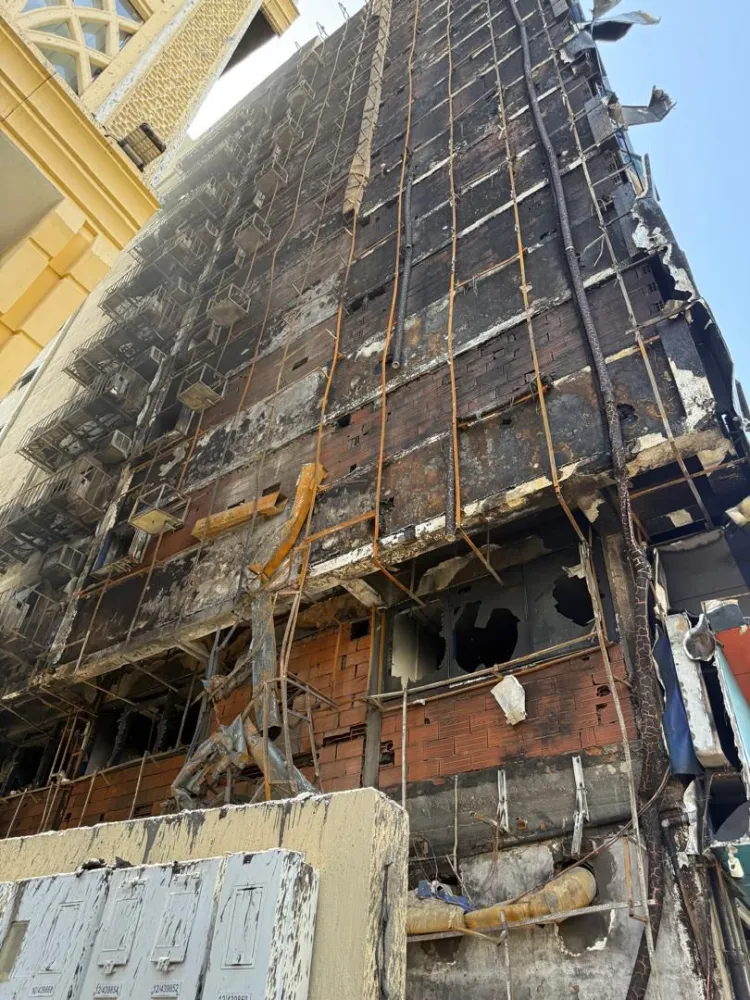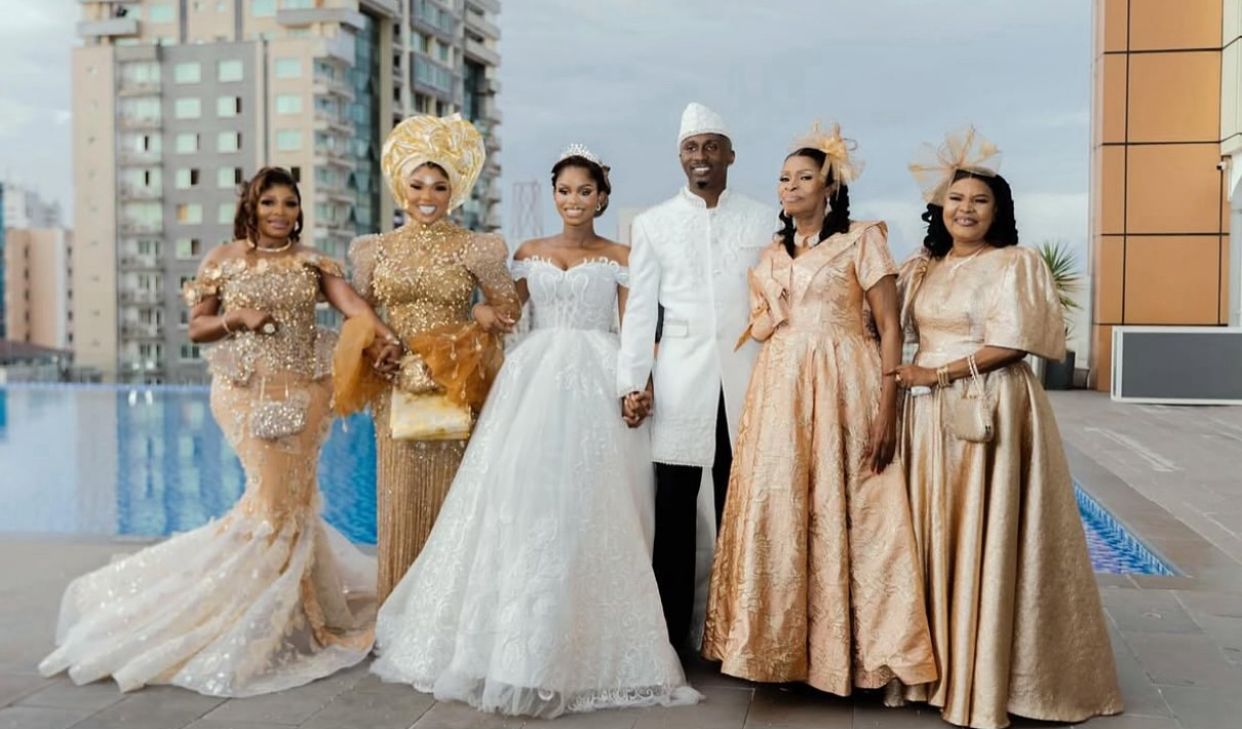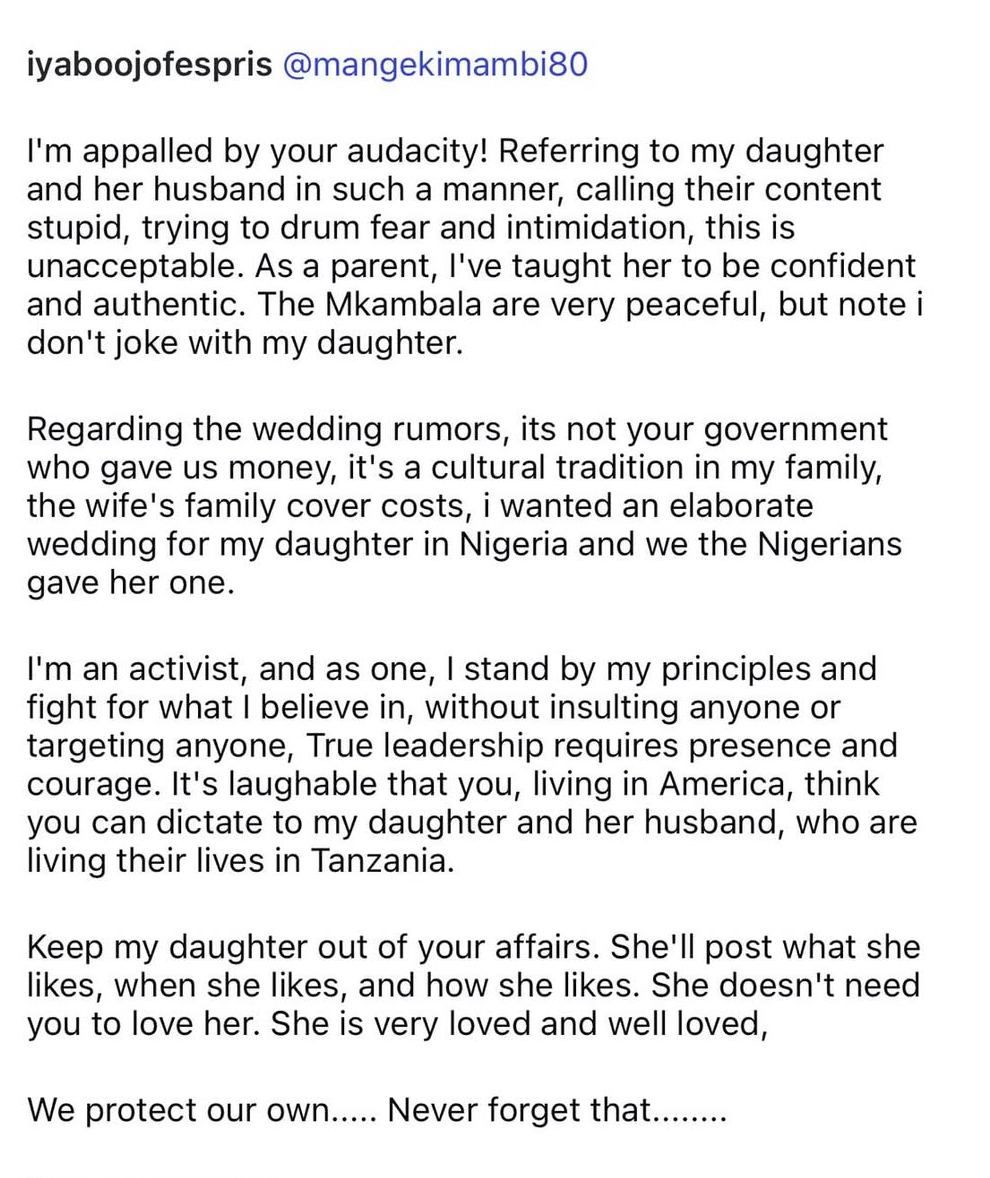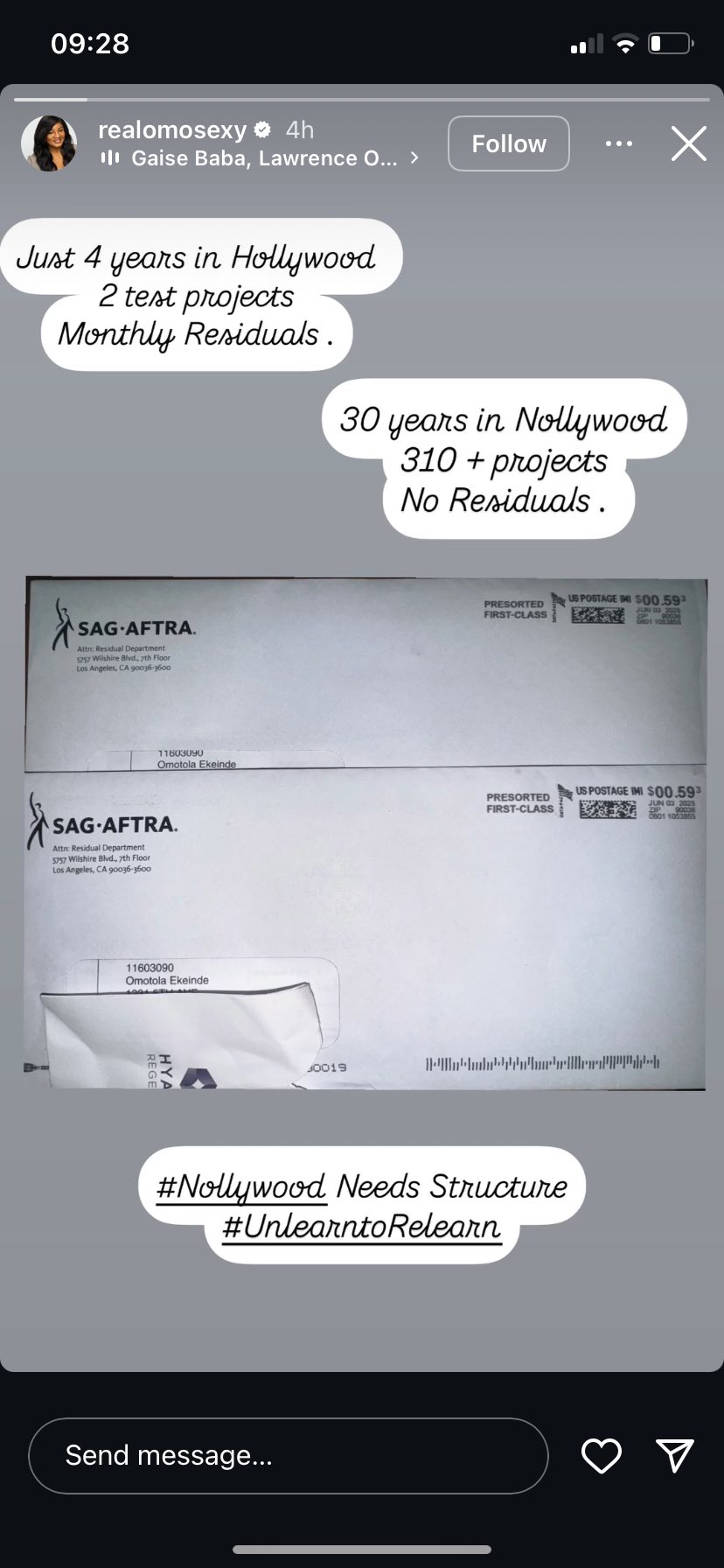AFOLABI
Transfer: Al Hilal book travel, medicals for Osimhen after agreeing €75m deal
Al Hilal have booked the travel and medicals for Victor Osimhen after agreeing a €75million deal with Napoli.
The Saudi Pro League club are, however, waiting on Osimhen’s green light to proceed with the transfer.
This was confirmed by football transfer expert, Fabrizio Romano, via his X account on Saturday night.
“Al Hilal have booked travel and medical for Victor Osimhen, still waiting for his green light to the move.
“€75m deal in place with Napoli after new proposal revealed yesterday, depending on the player now,” Romano wrote.
DAILY POST reported that Osimhen has flown back to Nigeria as he prepares to make a decision on his next club.
The 26-year-old was close to sealing a move to Chelsea last summer, before he eventually agreed a one-year loan deal with Galatasaray.
Money In The Bank 2025: Seth Rollins, Naomi Secure Briefcase, John Cena Loses - see full results
While it may be a rung below WWE's "Big Four" premium live events, Money in the Bank is one of the most exciting and intriguing shows on the wrestling calendar each year. This year's edition delivered plenty of action, with Seth Rollins winning for the men’s WWE Money in the Bank 2025 ladder match and Naomi winning for the women. The night’s biggest surprise came in the main event, where R-Truth made a shocking return and interfered to dramatically change the outcome.
This year's event featured five matches, with both Intercontinental Championships being defended in addition to the titular men's and women's Money in the Bank ladder contests. In the lone non-MITB or championship match of the night, Undisputed WWE Champion John Cena teamed with Logan Paul against Jey Uso and Cody Rhodes.
The show opened with Naomi capturing the Money in the Bank briefcase for the first time in her career on her fifth try. Naomi’s win continues something of a career renaissance for the veteran, who has reinvented her character as a heel and now has a guaranteed championship opportunity, likely on "WWE SmackDown."
After an altercation at Worlds Collide earlier in the day, Dominik Mysterio defended his WWE Intercontinental Championship against AAA star Octagón Jr. It was an action-filled — albeit brief — contest that was a very late addition to Saturday's Money in the Bank card.
The other championship match on the card — between Becky Lynch and Lyra Valkyria — was another instant classic between the two Irish stars. The finish, which involved Lynch using heel tactics to score the win, leaves the door wide-open for a trilogy contest between these two later this summer.
The men’s Money in the Bank contest went for more than 33 minutes and devolved into chaos in the latter stages, with run-ins from Jacob Fatu, JC Mateo, Bronson Reed and Bron Breakker. After Fatu turned on Solo Sikoa, paying off an ongoing teased angle, Rollins won the Money in the Bank briefcase for the second time in his career.
The main event marked the first time Rhodes has wrestled since his loss to Cena at WrestleMania 41. It was a solid match that saw several high spots from Paul and the somewhat shocking return of R-Truth, who fans had chanted for all night after news of his WWE release earlier in the week. Truth, who faced Cena at Saturday Night’s Main Event two weeks ago, ran in from the crowd to attack the Undisputed WWE Champion, aiding Rhodes and Uso in the process. In the post-event press conference, WWE Chief Creative Officer Paul "Triple H" Levesque said Truth's reported release was "all part of the show."
Here are the full results and analysis from Money in the Bank:
Cody Rhodes and Jey Uso defeat John Cena and Logan Paul
-
Analysis: Uso has everything you want in a top champion. He’s solid in the ring and oozes charisma with his entrance and connection to the crowd. That’s what makes it so baffling as to why this isn’t clicking. Uso got beaten down for a significant portion of this match and, if we’re being completely honest, probably comes out of Saturday’s main event as the wrestler we’re talking about the least. We always knew we were getting Rhodes and Cena again sometime before the end of the retirement tour, so Rhodes getting the pin is unsurprising, even if it was satisfying. Paul had some hiccups, but also the drone superplex and the aforementioned best spot were innovative and maybe the in-ring high points of the night. Cena worked well with Paul and the story they told as a dysfunctional team was great during the match. The R-Truth return was a legitimately surprising moment. It’s just unclear if this can truly be a bigger launching point for him at this stage in his career, though it appears that he's being branded as Ron Killings, per WWE's latest merchandise offerings.
Seth Rollins win the men's Money in the Bank briefcase
-
Analysis: Because of the Rollins stable, this match was always going to devolve into chaos due to outside interference. "The Visionary" winning his second MITB briefcase was absolutely the right call and gives him a quick, clear path to dominance on "WWE Raw." Every man in this match got at least one major, jaw-dropping spot and had a chance to shine, it’s just unfortunate that half the field would have been a baffling booking decision had they won. After turning on Sikoa, Fatu becomes a pure babyface and we know exactly where his next feud lies. The biggest loser here, in terms of status on the card, is LA Knight, who lost in this ladder match for the third year in a row. As far as when we will see a potential cash-in, Jey Uso faces Gunther this Monday and Rollins stealing the title could set up a SummerSlam main event against CM Punk for the World Heavyweight Championship.
Becky Lynch win the Women's Intercontinental Championship
-
Analysis: For the second PLE in a row, Lynch and Valkyria stole the show. This match delivered from both an in-ring and storytelling perspective and has us on a direct path toward a trilogy match between the two. Lynch has brought out the best in Valkyria, and since her return at WrestleMania 41 has shown why she is on the short list for the greatest female wrestlers of all-time. After the match we saw Valkyria snap and attack Lynch, which is the latest twist in her babyface mean streak. It will be interesting to see where WWE decides to put Lynch-Valkyria III. I can see it going on the Evolution card next month, but it could also demand the spotlight as part of the first two-night SummerSlam in August.
Dominik Mysterio retain the Intercontinental Championship
-
Analysis: For the second consecutive PLE, we had an impressive — albeit brief — luchador showcase. The action was fast-paced and great, but I wonder if this would have been better served with more time on a "Raw" Netflix show. Mysterio’s taunting of the AAA stars could lead to a bigger tag match between them and the Judgment Day, which would be excellent. Otherwise, there’s not much to take away from this sub-five minute match.
Naomi secure the Women's Money in the Bank briefcase
-
Analysis: In a match that seemingly had no bad possible outcome, Naomi’s win is an immediate breath of fresh air into the "SmackDown" women’s division and a payoff for the veteran who has overhauled her entire persona over the past few months. The MITB briefcase almost always works better with heel holding it compared to a babyface, and there’s a great full-circle moment to be told if Naomi cashes in on Tiffany Stratton in the near future. The other possibility, if WWE is ready to go this route, is for Jade Cargill to challenge for — or win — the WWE Women’s Championship and for Naomi to use the briefcase then. None of the women who competed in the night’s opener came out looking weaker, with Giulia in line for a Women’s United States Championship feud/run and "Raw’s" women’s division being deep and full of fresh matchups.
[Yahoo sports]
No desire to mend relationship with Musk - Trump
US President Donald Trump says he has no desire to restore his relationship with Elon Musk, the tech tycoon.
Both men fell out publicly after Musk left his role as Trump’s adviser a day after he criticised the president-backed tax bill.
Musk cited a contract fulfilment as a reason for his exit, but Trump said he asked the businessman to leave because he was “wearing thin”.
Trump’s comments came after both men traded words on social media.
In a series of posts on X, Musk accused the US president of being in the Jeffrey Epstein files, warning that his tariffs would cause a recession.
The tech tycoon also backed calls for Trump’s impeachment and called the president ungrateful for helping him win the elections.
Most of the posts have now been deleted.
However, Trump told NBC News in a phone interview on Saturday that Musk was “disrespectful to the office of the president”.
Asked if he thought his relationship with the Tesla and SpaceX chief executive officer (CEO) was over, Trump said, “I would assume so, yeah”.
“No,” he added when asked if he had any wish to repair the relationship.
Trump said he had no plans to speak with his former employee any time soon.
“I’m too busy doing other things,” he said, adding, “I have no intention of speaking to him.”
“I think it’s a very bad thing, because he’s very disrespectful. You could not disrespect the office of the president,” he added.
The ‘Big Beautiful Bill’ approved by Trump has been passed by the house but is still being debated at the senate.
The president said there would be “serious consequences” if Musk, who is deeply critical of the bill, funds Democratic candidates to run against Republicans who vote in favour of the legislation.
Trump did not share what those consequences would be.
He also dismissed Musk’s accusations of him being named in the Epstein files, calling it “old news”.
“Even Epstein’s lawyer said I had nothing to do with it,” he told NBC.
As part of the fallout consequences, Trump said he would cancel federal contracts awarded to Musk’s companies.
The president later told NBC he had not given any thought to his suggestion.
Trump also said he had received calls from allies who have recommended investigations into Musk’s business dealings and immigration record.
‘There Is Increasing Hunger, Poverty In Nigeria’ – Former Lawmaker Laments
Former Niger State lawmaker, Malik Madaki Bosso, has lamented the increasing poverty and hunger in Nigeria.
Bosso asserts that politicians in the nation are intentionally sustaining poverty and hunger to manipulate the populace for their political advantage.
In a harsh critique, Bosso denounced the existing political leadership for neglecting the citizens during their times of need, only to exploit them for votes during elections.
In his Sallah message to the community, Bosso urged the people to reflect and evaluate their circumstances.
Although Sallah is traditionally a time for celebration, Bosso observed that the majority of the population has been deprived of this joy due to poverty and deprivation.
He noted that, despite revenues from the Federation Account increasing by 100%, poverty and insecurity remain prevalent.
The former lawmaker said: “The highest money shared during the last government among the federal, state and local governments was about ₦750 billion. But now, the three tiers of government share about ₦1.4 to 2.4 trillion
“How can you justify that despite this huge difference, there is increasing poverty and hunger. When there is a need for people in positions of authority to help, they always complain that there’s no money.”
Bosso explained that politicians pretend to care for the people only during elections, shower them with money just to secure their votes, adding, “Once in office, they abandon the people, leaving them to struggle with poverty and insecurity.”
He called on the government at all levels to prioritise the welfare and security of the people, as mandated by the constitution, while urging Nigerians to demand accountability and good governance from their leaders.
Insisting, he said, “Resist the manipulation of greedy politicians who only care about their votes during elections.”
Furthermore, Malik expressed concern for the people of Mokwa, who are still suffering from the devastating flood that hit their communities, urging politicians not to neglect them in their time of need.
Name The Politicians Behind The K!llings In Benue State – PDP Challenges Governor Alia
The Peoples Democratic Party (PDP) has challenged Benue State Governor Hyacinth Alia to disclose the names of the politicians he claims are responsible for the ongoing killings in the state.
The Benue chapter of the PDP, in a statement on Saturday, accused the governor of engaging in a blame game over the killings.
The opposition party was reacting to Alia’s comments during a live interview on Channels TV, where he accused Benue political office holders in Abuja of being behind the insecurity in the state.
PDP, in the statement signed by its Publicity Secretary, Tim Nyor, described the governor’s allegations as an attempt at political escapism which is not only irresponsible but also dangerously distracts from the urgent and substantive measures needed to address the crisis.
The party it views such reckless scapegoating by the governor as deeply disheartening and counterproductive.
“It is important to note that Benue’s security challenges are not in isolation in Nigeria. Neighbouring states such as Plateau and Taraba face similar threats, yet their governments have shown a more responsible approach by acknowledging the security realities and taking proactive steps to address them.
“Conversely, Governor Alia’s focus has been on blame-shifting, alternating between accusing Abuja politicians, foreign invaders and other scapegoats, instead of confronting the root causes of insecurity.
“We must ask: Are attacks in Plateau, Enugu, Taraba, or elsewhere solely attributable to Abuja representatives? Or is Benue being unfairly singled out in a political witch-hunt?
“The truth remains that herdsmen attacks in Benue predate Governor Alia’s administration, just as they did during the tenures of Governors Samuel Ortom and Gabriel Suswam. ”
According to the PDP, previous administrations recognized the threat and called it by its name – attacks by armed herdsmen – without resorting to reckless blame-shifting.
The party noted that it is disconcerting that logic and reason seem to be absent from the Alia administration’s approach to insecurity.
“Instead of addressing the fundamental issues, the governor’s rhetoric is marred by distractions, false accusations, and propaganda.
“Benue’s security challenges must not be dismissed or sacrificed on the altar of political expediency.
“To insinuate or outrightly claim that Abuja representatives are sponsors of herdsmen terrorism is not only irresponsible but a dangerous misdiagnosis of the problem,” the statement added.
PDP added that such reckless assertions by the Alia administration will surely undermine genuine efforts to address insecurity in the state.
The statement stressed that while the governor may enjoy immunity from prosecution, he must be reminded that the Abuja politicians he maligns do not share the privilege.
“If he genuinely believes his claims, he should present comprehensive security reports to the relevant authorities for appropriate action rather than resorting to baseless propaganda.
“The PDP urges Governor Alia to abandon the politics of blame and focus on concrete, inclusive, and responsible security strategies. Genuine leadership at this critical time requires honesty, responsibility, and a unifying spirit: qualities that are vital for a leader who also bears the moral responsibility of a Reverend,” the statement added.
2025 Hajj: Fire Guts Hotel Accommodating Over 480 Nigerian Pilgrims In Mecca
The National Hajj Commission of Nigeria (NAHCON) has confirmed a fire outbreak at a hotel housing Nigerian pilgrims on Shari Mansur Street in Makkah, Saudi Arabia.
In a statement, the NAHCON Assistant Director Information and Publication Division, Fatima Sanda Usara indicated that the incident occurred today, Saturday, around noon Saudi Arabian time.
According to the statement, the affected hotel, Imaratus Sanan, was hosting about 484 pilgrims from six Nigerian Private Tour Operator Companies, noting that no lives were lost, and all the pilgrims are safely in Mina valley observing one of the core Hajj rites.

“Immediate emergency response by Saudi authorities and the hotel management helped to contain the fire swiftly and prevent it from spreading all over the building”, the added.
The NAHCON in the statement said its Chairman, Professor Abdullahi Saleh alongside some other officials has promptly visited the hotel to assess the situation for appropriate action.
Meanwhile, the NAHCON Chairman has ordered for immediate relocation of the affected pilgrims to a new accommodation, even as he assured that the Commission will work with the affected tour operators to provide necessary assistance to the victims.
Actress, Priscilla Ojo Ignores Tanzanian Media Personality, Posts More Photos From Her Wedding To Juma Jux
In what is a clear defiance to Tanzanian media personality Mange Kimambi's warning, Priscilla, daughter of actress Iyabo Ojo, has shared even more photos from her wedding to Tanzanian singer Juma Jux.
Recall that Mange had shared a post on her IG page on Friday, June 6, asking Priscilla to stop posting any content from her wedding as Tanzanian's are being distracted from serious issues such as the demand for electoral reforms ahead of their national elections.

Priscilla seems to ignore her and has now shared more photos from her wedding.
She wrote: ‘’Thank God say man nor be God''
Insecurity: We’re Under Siege, Terrorism Is Eating Up Benue – Governor Alia Laments
Benue State Governor, Hyacinth Alia, has lamented that the state is currently under siege by terrorists and armed bandits.
Alia said that the recent attacks that have claimed several lives is beyond herders-farmers clash.
Recall that there has been a surge in attacks in the state in recent weeks, with several local government areas experiencing violent onslaughts that have claimed numerous lives.
The governor, who made this declaration on Channels Television’s Politics Today on Friday, said that the attacks are well planned and executed by terrorists. “We are under siege.
The way these attacks come and the intel we receive, it is a directed calibrated plan and then executed.
“On a daily basis we are receiving those intel. Of late, each of those intel we receive, 60 to 65 per cent of it is quite accurate.
“And then when you realise what is going on, it is beyond just conflict, it is beyond just an ethnic fight between herders and farmers in our state, it is directed, it is planned and then it is executed, it is some terrorism,” he said.
The Catholic priest-turned politician insisted that he no longer views the attacks as a clash between farmers and herders, stating that they now involve specialized killers—terrorists who engage in a form of guerrilla warfare.
He said that for some reason, none of the killers was ever caught, adding that they come in the thick of the night, hit, run and nobody sees a trace.
Recall that several persons were on Friday evening feared dead and many others injured after suspected armed herdsmen launched a fresh attack on the Makurdi–Naka road.
Keep My Daughter Out Of Your Affairs - Actress, Iyabo Ojo Slams Media Personality Who Called Out Her Daughter
Iyabo Ojo, the popular Nollywood actress, has responded hotly to Tanzanian activist and media personality, Mange Kimambi, defending her daughter Priscilla and her husband, Juma, following criticism over their recent posts.
The activist had accused the couple of distracting Tanzanians from the ongoing political unrest in the country, labelling their social media posts as “stupid” and irrelevant.
She also urged them to stay off the radar while citizens were focused on fighting the government.
Iyabo didn’t take it lightly.
In a strongly worded Instagram post, she addressed Kimambi directly and defended her daughter: “@mangekimambi80
I'm appalled by your audacity! Referring to my daughter and her husband in such a manner, calling their content stupid, trying to drum fear and intimidation, this is unacceptable. As a parent, I've taught her to be confident and authentic. The Mkambala are very peaceful, but note I don't joke with my daughter.
Regarding the wedding rumors, it's not your government who gave us money, it's a cultural tradition in my family, the wife's family cover costs. I wanted an elaborate wedding for my daughter in Nigeria and we the Nigerians gave her one.
I'm an activist, and as one, I stand by my principles and fight for what I believe in, without insulting anyone or targeting anyone. True leadership requires presence and courage. It's laughable that you, living in America, think you can dictate to my daughter and her husband, who are living their lives in Tanzania.
Keep my daughter out of your affairs. She'll post what she likes, when she likes, and how she likes. She doesn't need you to love her. She is very loved and well loved.
We protect our own… Never forget that…”
The clash has since sparked reactions online, with supporters on both sides weighing in on the situation.

Veteran Actress, Omotola Jalade-Ekeinde Compares Working In Hollywood Versus Nollywood
Omotola Jalade-Ekeinde, the veteran Nollywood actress, has renewed calls for structural reforms in Nigeria’s film industry, drawing comparisons between her experiences in Nollywood and Hollywood.
In a post shared via her Instagram story, the actress highlighted the stark contrast in royalty payments between the two film industries.
Omotola, who has spent over three decades in Nollywood with more than 310 projects to her name, lamented the absence of residual payments for actors in the Nigerian film industry.
In contrast, she revealed that she continues to receive monthly residuals for just two test projects completed during her brief four-year stint in Hollywood.
“Just 4 years in Hollywood, 2 test projects, monthly residuals,” she wrote in the post, accompanied by an image of envelopes from SAG-AFTRA, the American union representing film and television actors.
“30 years in Nollywood, 310+ projects, no residuals,” she added.
She ended with the hashtags #NollywoodNeedsStructure and #UnlearntoRelearn, reinforcing her call for systemic change in Nollywood’s compensation model.











